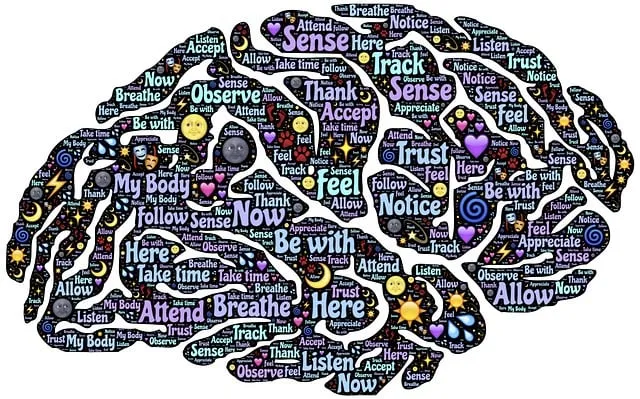The Englewood Kaiser Permanente mental health center stands out for its positive Englewood Kaiser Permanente mental health center reviews due to its commitment to cultural sensitivity, offering personalized care that respects diverse beliefs and behaviors. Through staff diversity, tailored treatment plans, compassion cultivation workshops, and stress management programs, the center creates an inclusive environment fostering trust and empowerment. This holistic approach, evident in initiatives like Mental Wellness Coaching and a podcast series, aligns with patient needs, improves outcomes, and promotes open dialogue, as highlighted in reviews.
“In the realm of mental healthcare, cultural sensitivity is not just a preference—it’s an ethical imperative. This comprehensive guide explores the fundamental role it plays in ensuring equitable and effective treatment for diverse populations. Drawing from the exemplary practices at Englewood Kaiser Permanente, known for its focus on inclusive care, we’ll delve into the impact of cultural competence on patient outcomes and engagement. Furthermore, practical strategies will be presented to help clinical settings incorporate cultural sensitivity, with real-world examples from leading mental health centers, including Englewood Kaiser Permanente mental health center reviews.”
- Understanding Cultural Sensitivity: A Cornerstone of Ethical Mental Healthcare
- Englewood Kaiser Permanente: A Focus on Diverse Populations and Inclusive Practice
- The Impact of Cultural Competence on Patient Outcomes and Engagement
- Strategies for Incorporating Cultural Sensitivity in Clinical Settings
- Reviewing Success Stories: Real-World Examples of Effective Cultural Sensitive Mental Healthcare
Understanding Cultural Sensitivity: A Cornerstone of Ethical Mental Healthcare

In the realm of mental healthcare, cultural sensitivity stands as a cornerstone of ethical practice. It involves recognizing and respecting the diverse beliefs, values, and behaviors that shape individuals’ lives, as highlighted in numerous Englewood Kaiser Permanente mental health center reviews. This nuanced approach ensures that care is tailored to meet the unique needs of every patient, fostering trust and improving outcomes. At its heart, cultural sensitivity drives healthcare providers to move beyond standardized treatments and embrace a more holistic understanding of mental well-being, which is deeply influenced by cultural context.
By incorporating compassion cultivation practices and stress management workshops within their organizations, mental health professionals can cultivate a deeper sense of cultural awareness. These initiatives not only enhance the patient-provider relationship but also empower individuals to navigate life’s challenges with greater resilience. Thus, cultural sensitivity in mental healthcare practice is not merely an add-on service; it’s a fundamental strategy for delivering inclusive, effective, and compassionate care.
Englewood Kaiser Permanente: A Focus on Diverse Populations and Inclusive Practice

Englewood Kaiser Permanente stands out as a beacon of inclusive mental healthcare practice, dedicated to serving diverse populations with compassion and cultural sensitivity. This mental health center reviews consistently highlight their approach to fostering an environment where every patient feels understood and valued. By incorporating diverse staff members from various ethnic and cultural backgrounds, they bridge the gap between care providers and patients from different communities, ensuring culturally competent services.
Englewood Kaiser Permanente’s commitment to emotional healing processes is evident through their tailored treatment plans that incorporate resilience-building exercises and self-awareness activities. These initiatives not only address individual mental health concerns but also promote cultural understanding and acceptance, fostering a supportive ecosystem for all. Their inclusive practice extends beyond words, as seen in numerous Englewood Kaiser Permanente mental health center reviews, which praise the center’s ability to meet the unique needs of every patient with warmth and professionalism.
The Impact of Cultural Competence on Patient Outcomes and Engagement

Cultural sensitivity plays a pivotal role in shaping patient outcomes and engagement within mental healthcare settings, such as the Englewood Kaiser Permanente mental health center, as evidenced by numerous reviews. The ability to understand and appreciate cultural differences can significantly improve patient experiences and treatment effectiveness. When mental health professionals demonstrate cultural competence, they create an environment that respects individual beliefs, values, and traditions, fostering trust and encouraging open communication.
This approach is particularly crucial in addressing the complex interplay of mental illness and cultural identity. By incorporating insights from diverse communities, healthcare providers can tailor interventions and therapies to meet specific cultural needs. For instance, the Stress Management Workshops Organization has recognized the importance of cultural sensitivity in its programs, aiming to reduce stigma associated with mental illness while promoting Mental Health Awareness. Similarly, Mental Illness Stigma Reduction Efforts have highlighted the positive impact of culturally responsive practices on patient outcomes, leading to improved engagement and overall well-being.
Strategies for Incorporating Cultural Sensitivity in Clinical Settings

Incorporating cultural sensitivity into clinical settings is a multifaceted process that requires intentional strategies to ensure effective mental healthcare for diverse populations. At the Englewood Kaiser Permanente mental health center, reviewed positively for its inclusive approach, these strategies are deeply embedded in their practice. One key method is Healthcare Provider Cultural Competency Training, which equips staff with the knowledge and skills to understand and appreciate various cultural beliefs, values, and practices. This training enables providers to create safe and supportive environments that respect individual differences.
Additionally, centers like Englewood Kaiser Permanente can offer tailored programs such as Depression Prevention and Trauma Support Services that resonate with specific cultural communities. By integrating these services into clinical care, healthcare providers demonstrate a commitment to addressing mental health challenges within the context of patients’ cultural identities. This personalized approach not only improves access to care but also enhances treatment outcomes, fostering a sense of trust and empowerment among diverse patient populations.
Reviewing Success Stories: Real-World Examples of Effective Cultural Sensitive Mental Healthcare

Reviewing success stories from renowned mental health institutions like the Englewood Kaiser Permanente center can offer valuable insights into culturally sensitive practices. These real-world examples demonstrate how tailored, inclusive care can significantly improve patient outcomes and satisfaction levels across diverse communities. For instance, the center’s innovative Mental Wellness Podcast Series Production has successfully engaged hard-to-reach populations by addressing cultural barriers through accessible media formats.
Furthermore, their integration of Stress Management techniques within a culturally sensitive framework has led to positive changes in patient well-being. The development of Mental Wellness Coaching Programs has empowered individuals to navigate their mental health journeys with enhanced coping skills and increased resilience. These initiatives highlight the power of adapting healthcare services to align with cultural values and beliefs, ultimately fostering trust and encouraging open communication between patients and providers.
Cultural sensitivity in mental healthcare is no longer a consideration, but an essential cornerstone for ethical practice. As highlighted by Englewood Kaiser Permanente’s successful focus on diverse populations, implementing inclusive practices significantly improves patient outcomes and engagement. By integrating cultural competence strategies, clinical settings can better cater to a wide range of patients, mirroring real-world successes seen in various mental healthcare centers, including Englewood Kaiser Permanente mental health center reviews. These efforts not only enhance care quality but also foster trust and positive relationships between patients and providers from diverse backgrounds.






